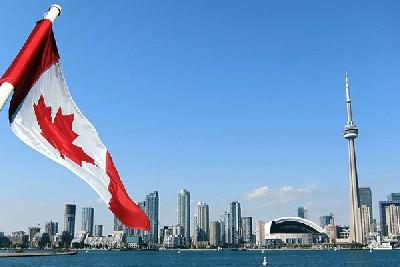
Canada stages a ‘value-confused diplomacy’
Global Times
Canada, long known for championing “value-based diplomacy,” recently staged a textbook example of “value-confused diplomacy.” Amid persistent calls from the US “wanting” Canada as its 51st State and ongoing threats of tariffs, 13 Canadian premiers recently visited Washington for lobby. However, what drew particular attention was not the US-Canada relations, but their decision to play the “China card,” hoping to paint the country as a “common economic enemy” in exchange for leniency from the US. It can be said that the country vividly demonstrated political opportunism, showcasing their diplomatic naivety.
Canada is currently facing significant external pressures, and with the country under a caretaker government and facing an impending election, the “premier delegation” to Washington was essentially a rather reluctant move. However, the fact that they collectively used the “China card” as their primary strategy and attempted to cater to the anti-China sentiments in the US to gain sympathy – reveals much about the political character and vision of certain Canadian politicians.
They unhesitatingly prioritized short-term electoral gains over long-term strategic autonomy, and temporary lobbying opportunities over the fundamental principles of international relations and diplomatic dignity, which will lead Canada deeper into the maze of national development and foreign policy.
The core message conveyed to the US on this visit is simple: As long as the US continues to cooperate with Canada, Canada is willing to act as a “vanguard” against China. It must be said that Ottawa has both underestimated and overestimated itself. Some have referred to the current US foreign policy style as the Neo-Monroe Doctrine or Neo-Jacksonianism, which centers on taking the idea of “America First” to its extreme. It not only pursues the law of the jungle, “trade is justice,” but also takes control of neighboring countries as the center of its foreign policy.
Historically, Canada has suffered under Jacksonianism, and its experience should have given it a more rational and thorough understanding of its pros and cons than others. Yet, its current display of “naive syndrome” is truly astonishing. Ottawa attempts to use China as a bargaining chip in US-Canada dealings, failing to realize Canada’s actual weight when placed on the scale – Washington’s offer will likely leave Ottawa disappointed.
For years, Canadian politicians have repeatedly followed the misguided logic of trading political favor for special treatment, and they are continuing down this erroneous path. To appease the US, Canada has wavered on the Huawei 5G issue, delaying its own technological transformation. It has blindly followed a China-containment policy in its “Indo-Pacific strategy,” making itself a “disruptor” in the eyes of Asian nations. The Meng Wanzhou incident and the unilateral imposition of a 100 percent tariff on Chinese electric vehicles were blatant attempts to swear “oath of allegiance” to the US, severely damaging China-Canada relations. Now, once again playing the “China card” in an attempt to gain US favor, Canada further reinforces its image as a weak nation lacking strategic autonomy. Over the years, Canada’s international reputation and credibility have deteriorated significantly, a trend that is inseparable from the short-sightedness and opportunism of its foreign policy.
As a moderately developed nation with abundant natural resources and a stable economy, Canada has the capacity to pursue a more independent foreign policy on the global stage. From Lester Pearson’s mediation in the Suez Canal crisis to Jean Chrétien’s leadership in advancing the Ottawa Treaty, banning anti-personnel landmines, there are many examples showing Canadian politicians have played a constructive role within multilateral frameworks historically. However, today, some Canadian politicians willingly reduce the country to a pawn in America’s geopolitical chess game, which shows that the country is actively dismantling its own international image.
The worst effect of Canada’s “group plea” is that, while suffering from unilateralism itself, it seeks to become a tool of unilateralism to reap benefits. Canada often claims to “oppose economic coercion,” yet it recklessly stigmatizes and labels China, politicizes trade issues. This double standard effectively makes Canada an accomplice in undermining the global trade order and dismantling the foundation of the multilateral trade system.
The illusion of gaining benefits by sacrificing its relationship with China actually serves to narrow Canada’s path step by step. China, as the world’s second-largest economy, has a strong trade foundation with Canada, and cooperation with China serves Canada’s national interests. Viewing China as an “economic enemy” will not only fail to solve Canada’s current problems but will also leave it in a more passive position on the international stage.
Which direction Canada should take remains an unanswered question. But history repeatedly proves that building foreign policy on fantasies of great power will ultimately lead to painful consequences. Canada’s way forward does not lie in the conference rooms of Washington, but in a strategic awakening in Ottawa. First, Canada must stop instrumentalizing China-related issues, and take an objective and rational attitude toward the common interests between China and Canada on a wide range of issues. The country should return to a rational and pragmatic diplomatic path, seeking true national interests in promoting multilateral cooperation and maintaining fair trade, rather than indulging in geopolitical confrontation.
